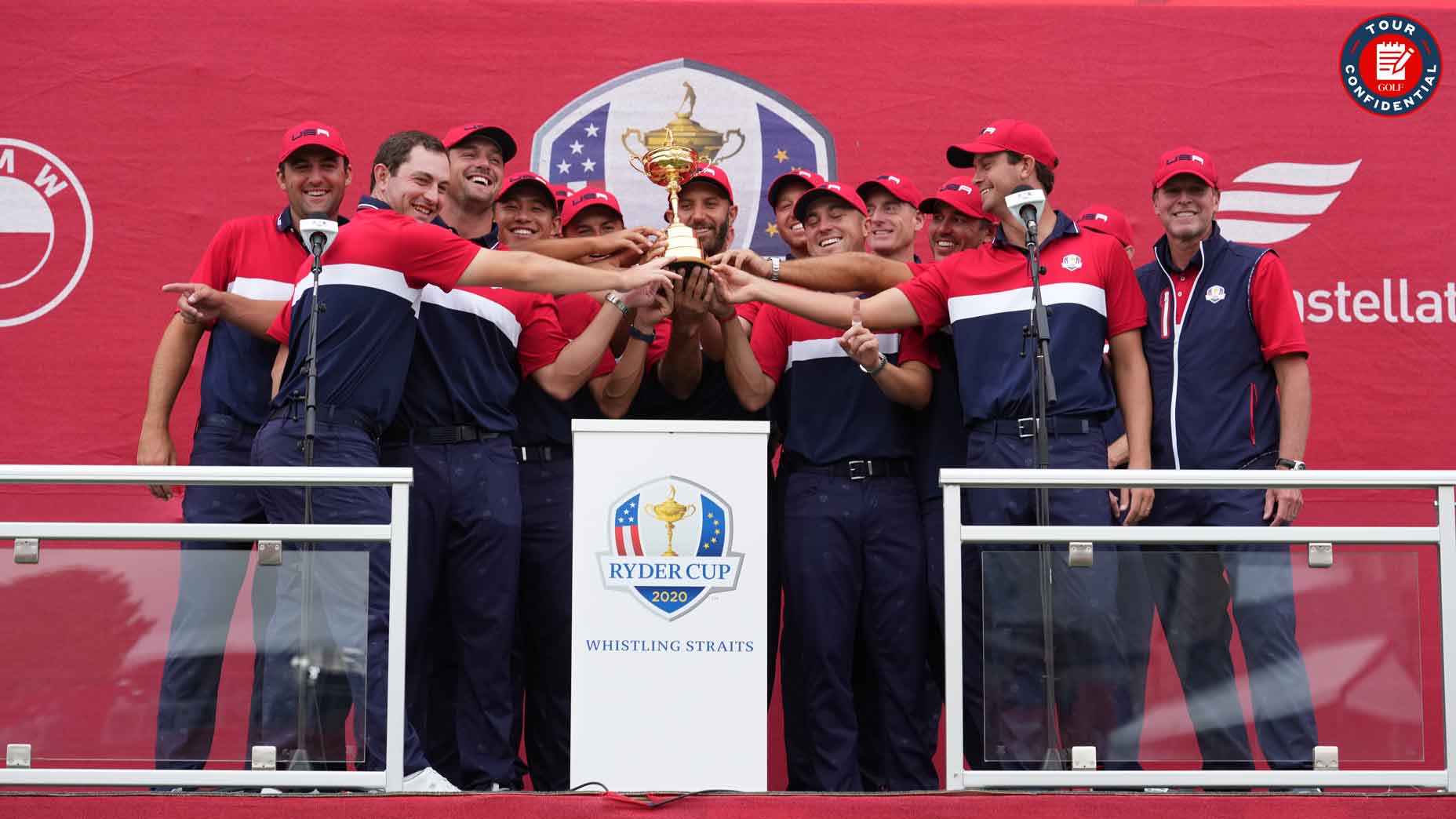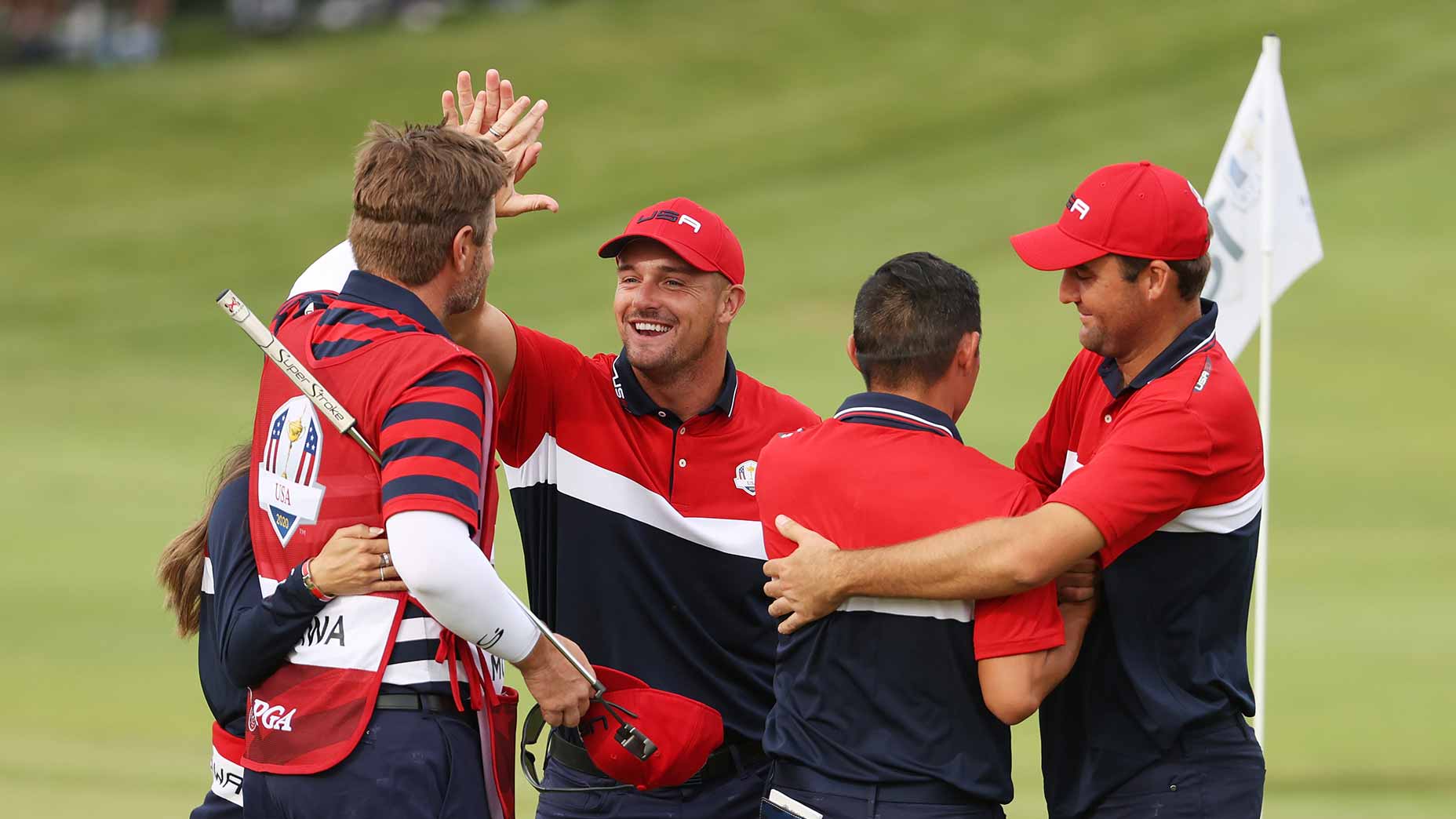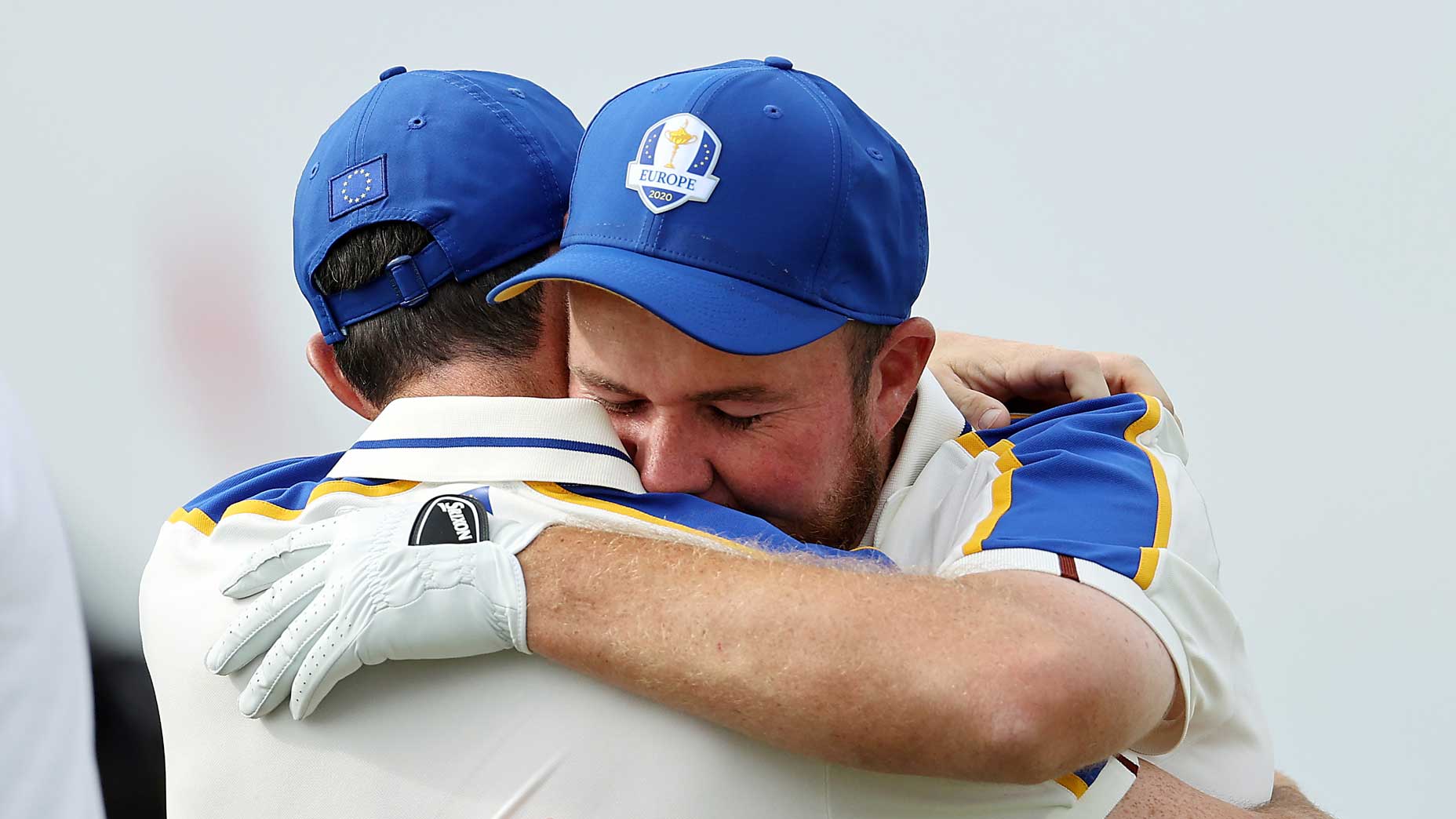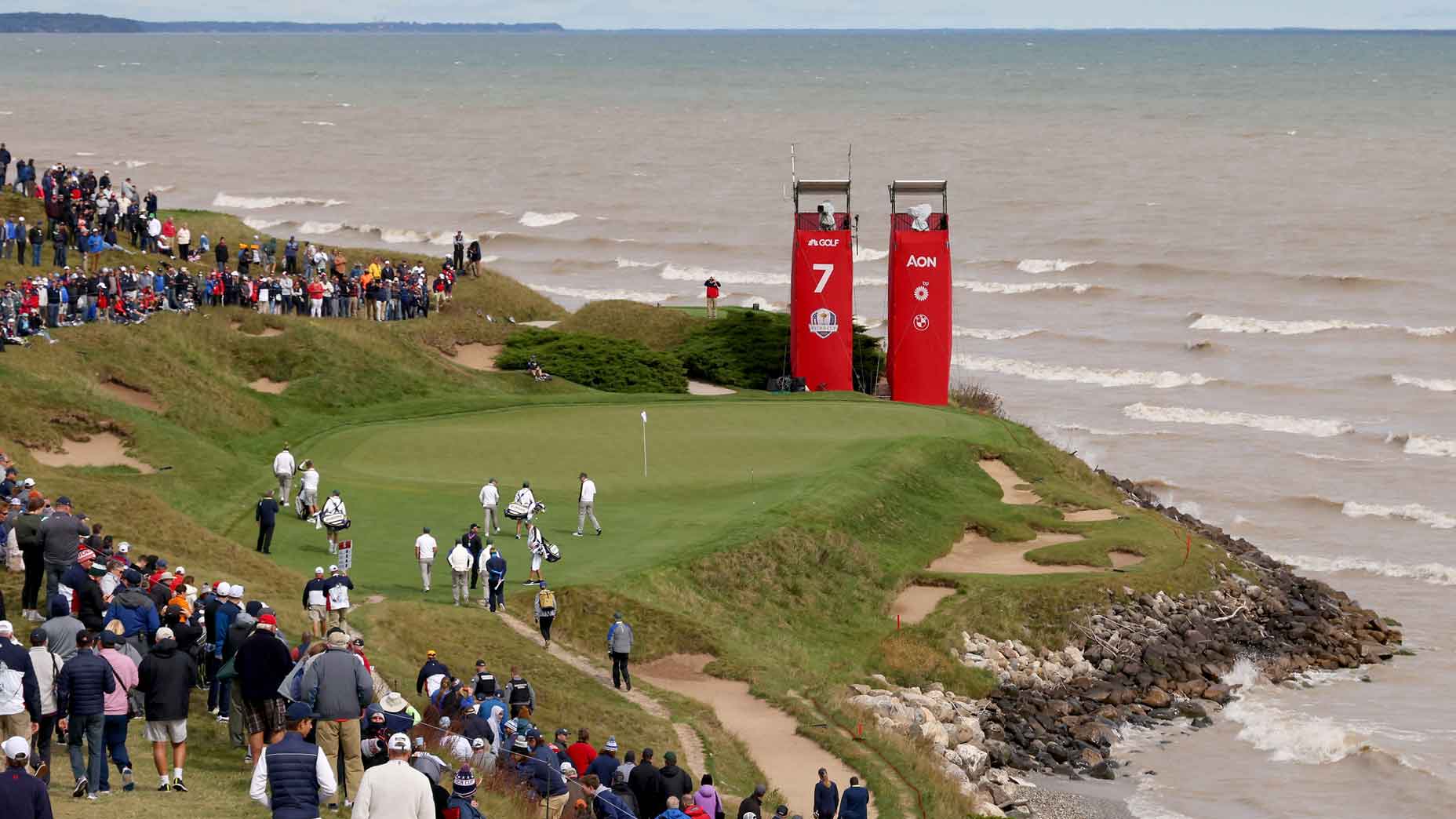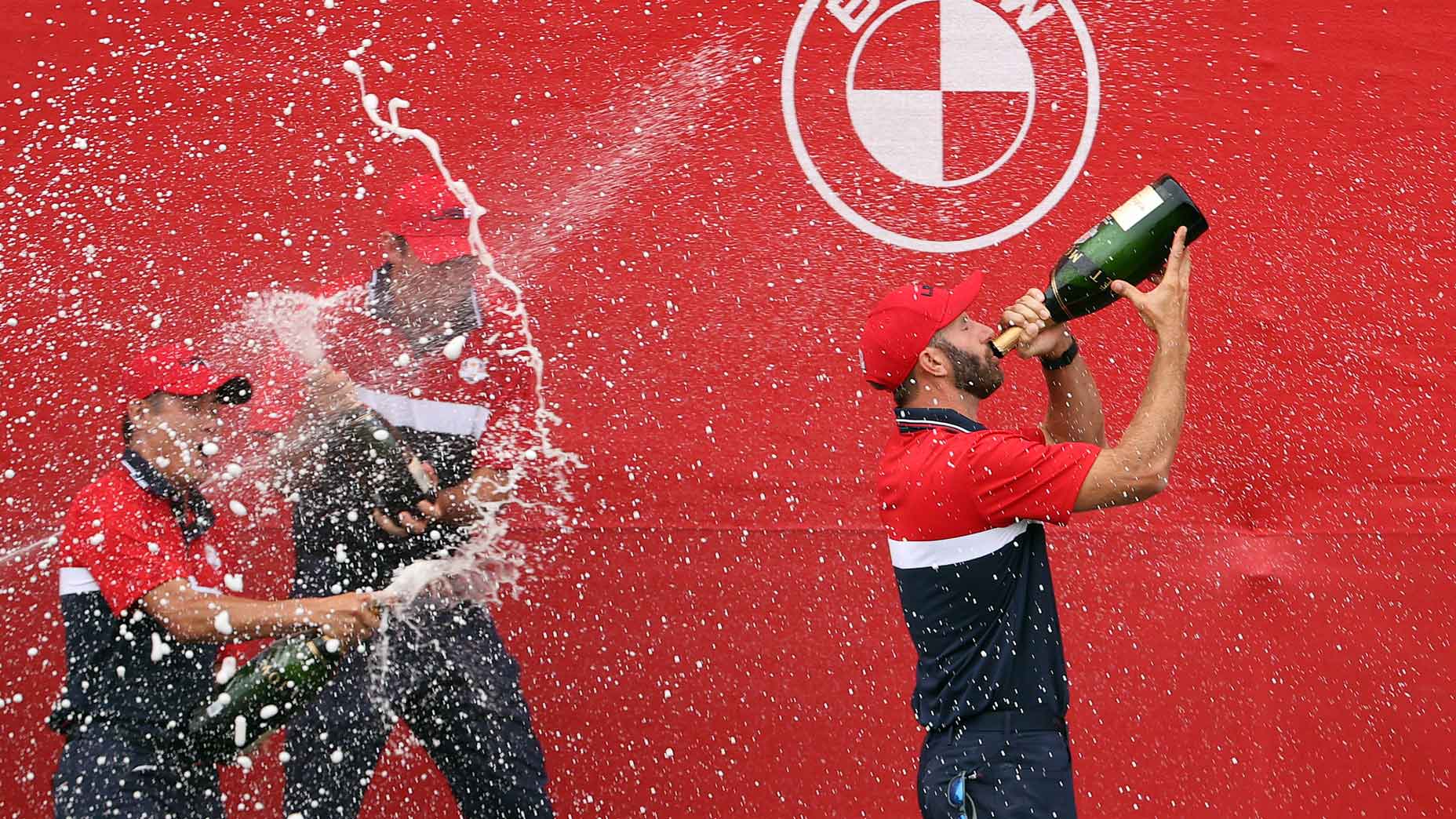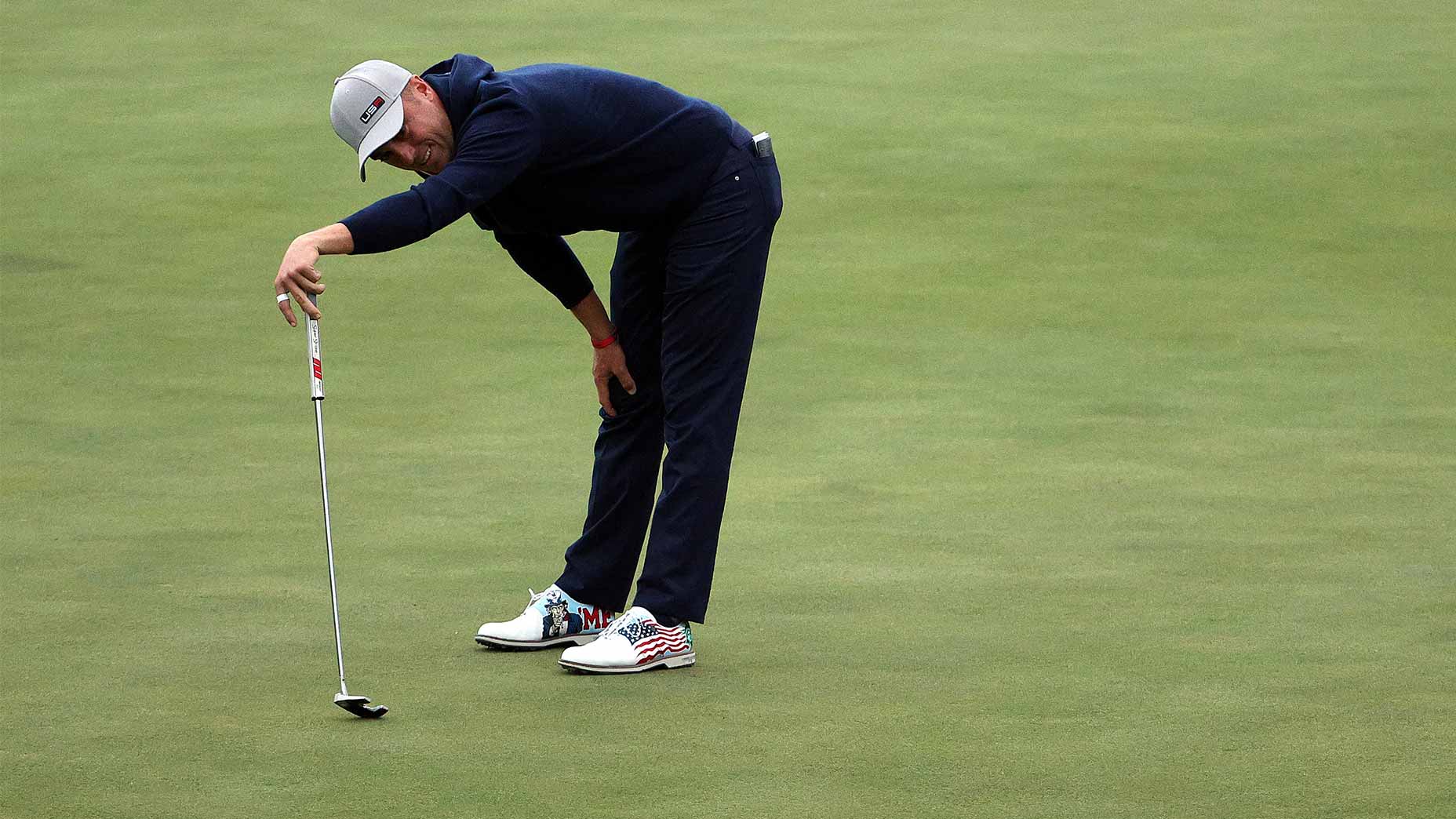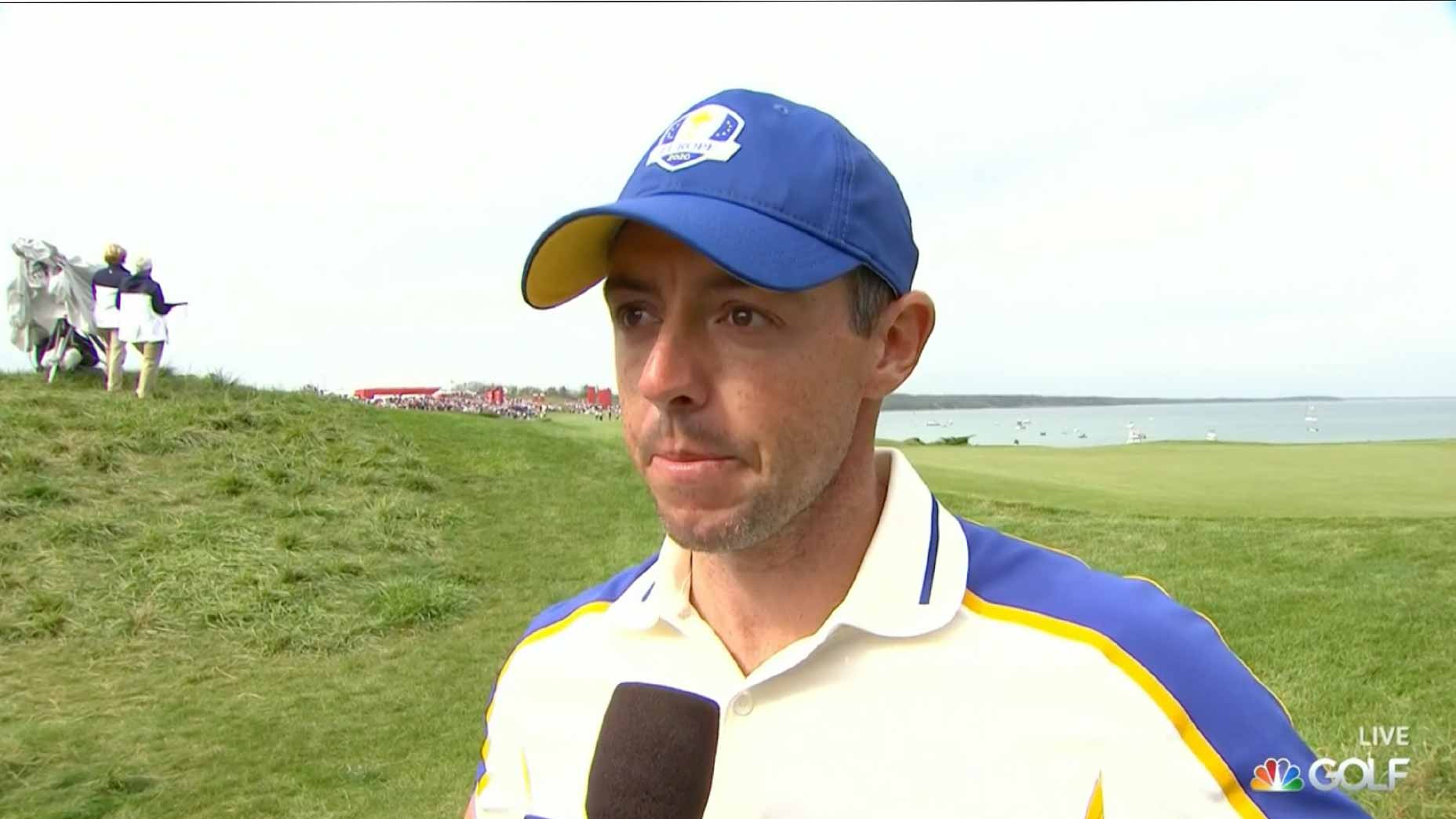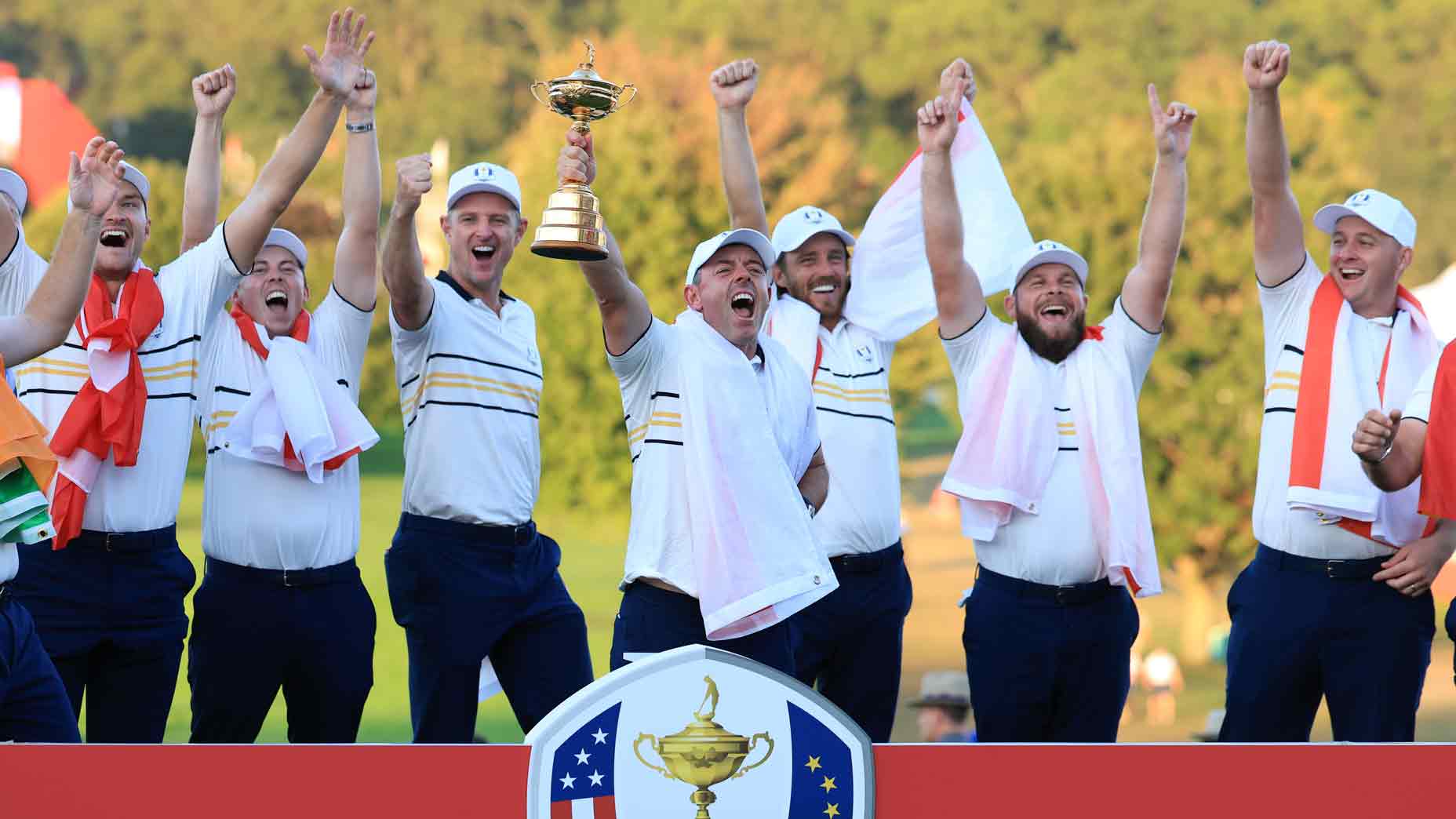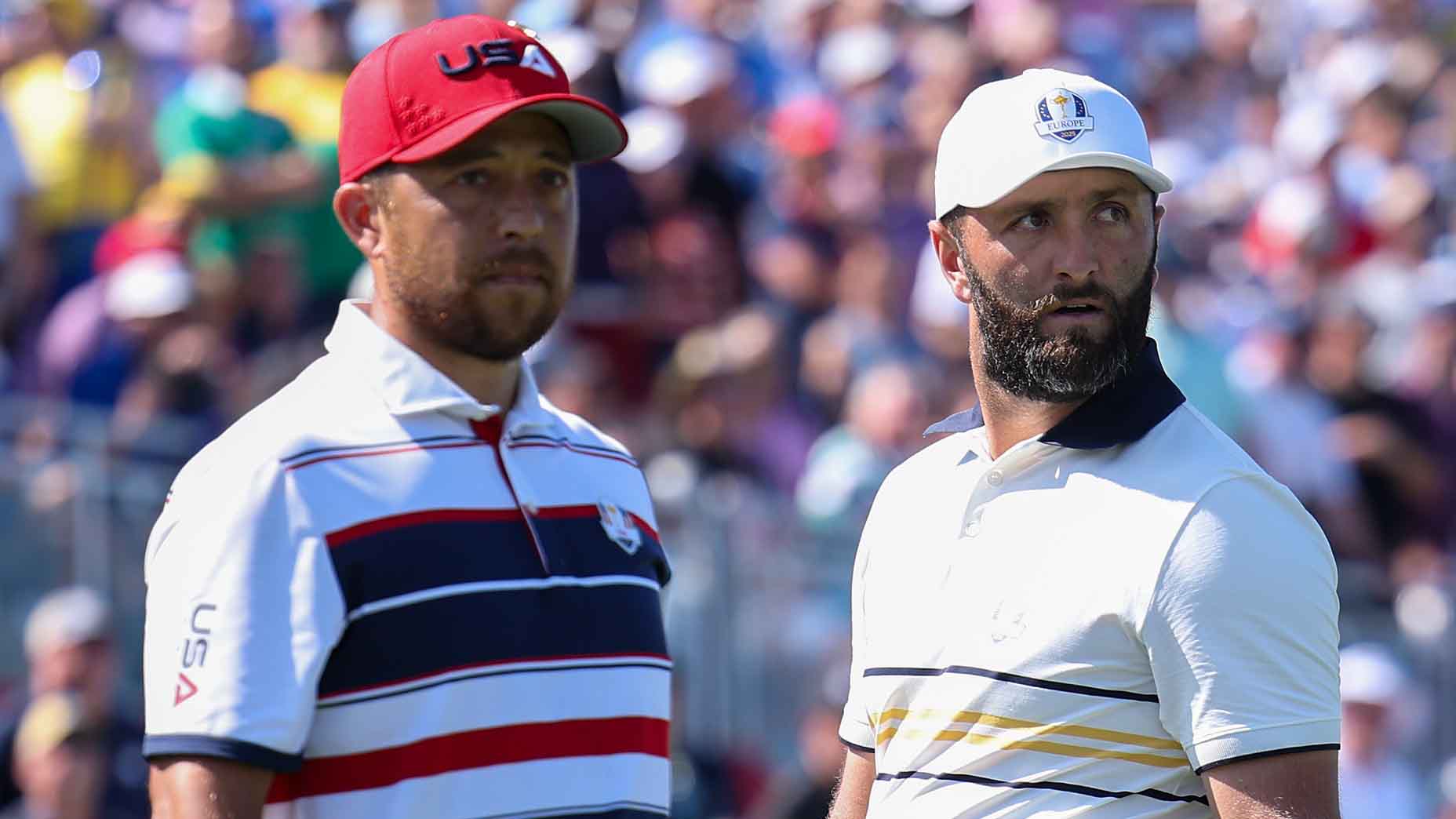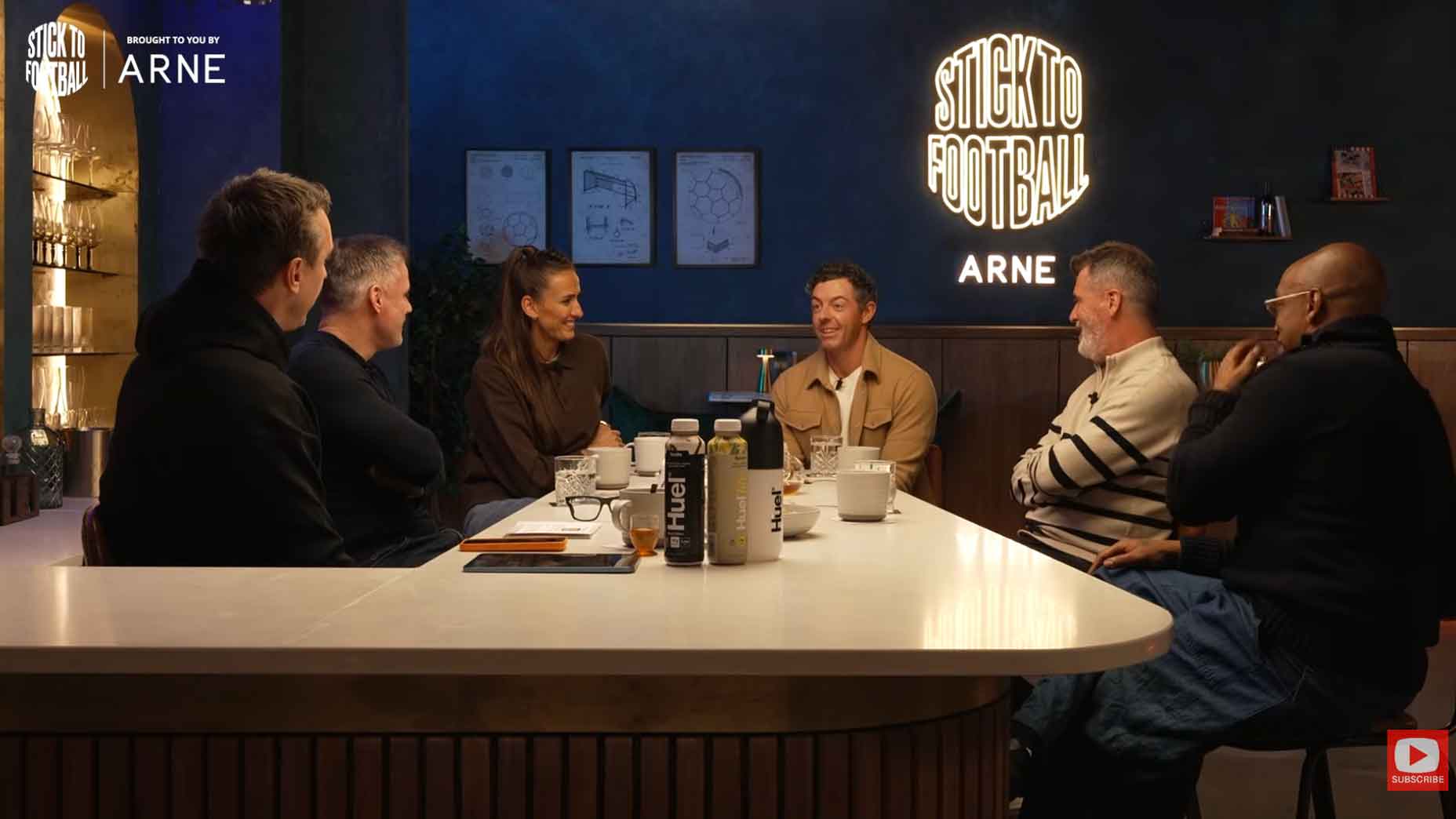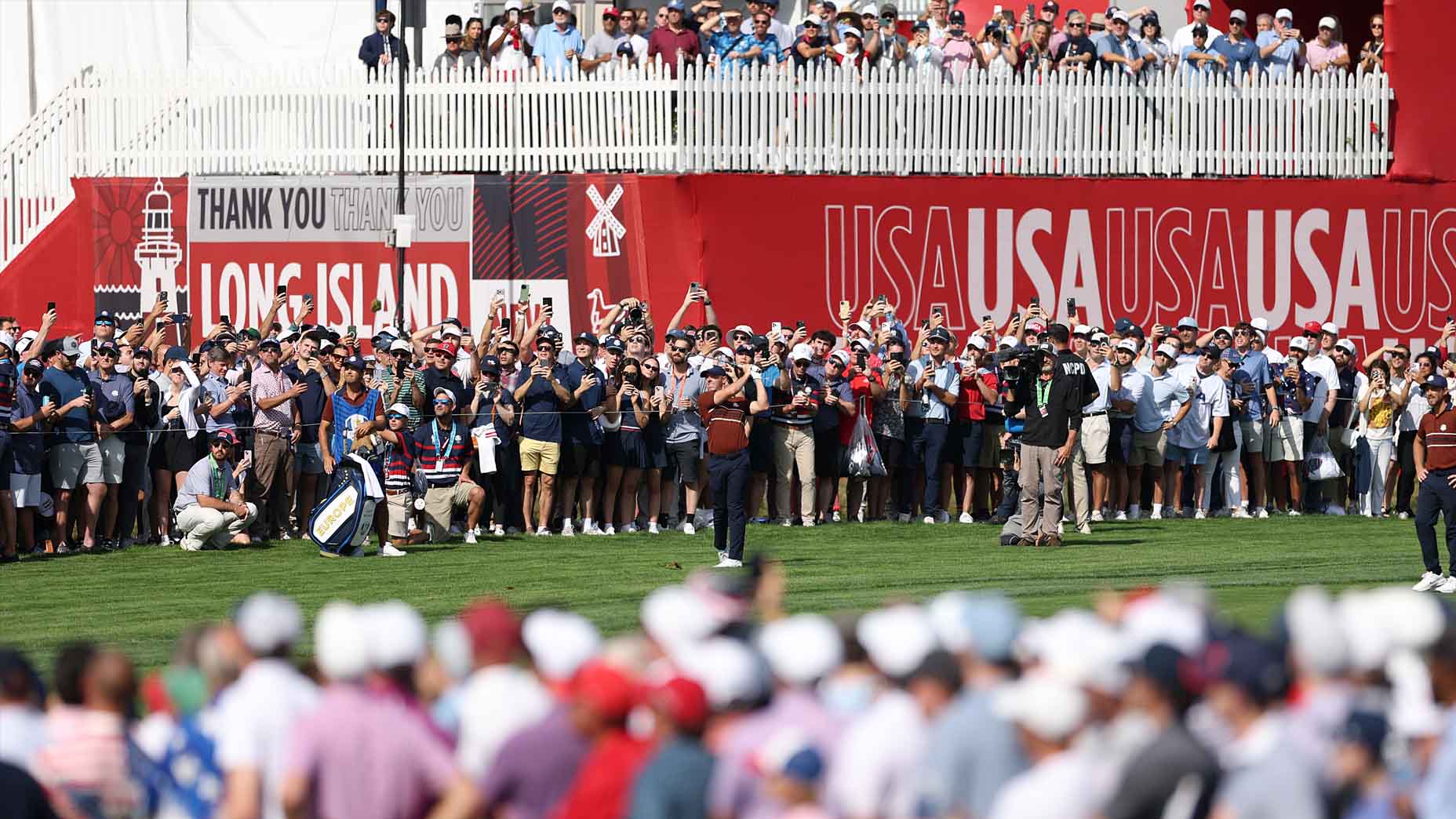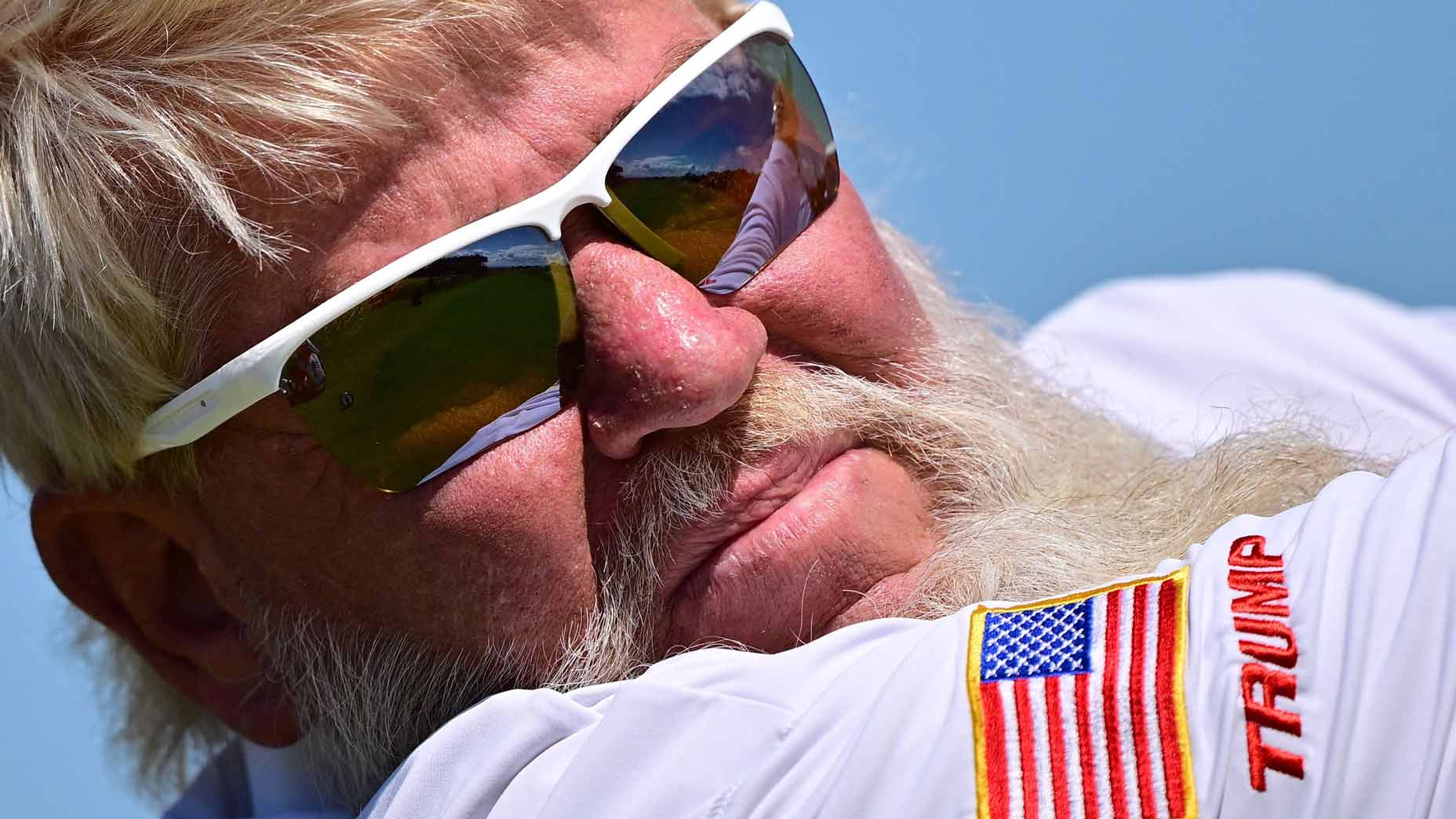Check in every week for the unfiltered opinions of our writers and editors as they break down the hottest topics in the sport, and join the conversation by tweeting us @golf_com. This week, what was the difference for the United States at the Ryder Cup, whether there should be cause for concern for the Europeans, conceded putts and more.
1. Behind seven Sunday singles victories, the U.S. defeated Europe 19-9 at Whistling Straits in Wisconsin to win the Ryder Cup. Depth drove the U.S. victory — Scottie Scheffler, at 21, was the lowest-ranked American. Still, this has been the case in the Ryder Cups past, and this marks only the United States’ third victory since 2002 in the biennial event. What, then, was the difference this time around?
‘This is a new era of USA golf’: High-powered U.S. beats Europe to win 43rd Ryder CupBy: Josh Berhow
Sean Zak, senior editor (@sean_zak): All kinds of differences, really. No European fans. No antagonism from that side. Everything was comfortable for this American team. And these PGA Tour pros love comfort. Steve Stricker played an extremely safe hand of cards, and it worked well from the jump. Didn’t have to panic. This event is played out over three days, but it moves quickly. He kept things nice and slow for his entire squad.
Zephyr Melton, assistant editor (@zephyrmelton): Sean is correct on all of the above, but at the end of the day, the U.S. just played better golf this week.
Josh Sens, senior writer (@joshsens): All of the above, for sure. But let’s not forget the bookends of performance, the long game and the short game. The U.S. dominated the par-5s. And they putted beautifully. On the flip side, I lost count of how many times the Europeans missed short to mid-range putts at critical moments. Add those up over a week, and you get a lopsided score.
James Colgan, assistant editor (@jamescolgan26): These things usually come down to putting, and it seemed like the Americans made just about every huge putt. There was a LOT more that went into it, obviously, but those clutch makes were what stuck out to me.
Jessica Marksbury, multimedia editor (@jess_marksbury): Echoing Josh and James. Team USA made seemingly everything, from long bombs to 6-foot knee-knockers. Whenever the Americans lose, it seems like the opposite is true, and they lip everything out while Europe pours them in. There’s no doubt that the Americans dominated with the flatstick this week, and it wasn’t even close.
Luke Kerr-Dineen, Game Improvement Editor (@lukekerrdineen): Blowouts like this don’t happen for one reason. There were lots of reasons the U.S. deservedly dominated this time around: The team was full of better players, who were more in-form coming in, played better this week and were perfectly captained by Steve Stricker. Europe had the inverse of all those things, and the result was a historic blowout.
Michael Bamberger, senior writer: An unequal distribution of talent. Look at the Friday morning foursomes match-up, which set the tone. Look at the 12 Sunday matches, which ended it.
2. Nearly every move Steve Stricker made this week turned out terrifically. His six captain’s picks all earned points. His decision to keep things light and reduce the week’s obligations gave off a more relaxed vibe. His choice to play foursomes first — a format the Americans have struggled in when compared to four-ball — led to a pair of 3-1 mornings. Nearly all of his pairings went off without a hitch. The captain may not be fiery, but the calm demeanor worked out. What, to you, stood out most with Stricker?
Zak: It’s easy to get caught up in the hoopla, but Stricker could never do that. He never has. He put his horses out there and had perhaps the best Ryder Cup team of all-time to mix and match pairings within. It’s not rocket science at that point.
Melton: Stricker has the perfect temperament for a successful U.S. captain. He doesn’t overthink things and doesn’t allow ego to get in the way for his teams. With this beatdown and the 2017 Presidents Cup domination to his name, he’s gotta be among the best U.S. captains of all-time at this point.
Sens: A lot of the guys talked about the looseness and camaraderie of the team. Some of that is just the nature of their personalities, but Stricker surely helped cultivate that. Or at least, didn’t detract or distract from that natural connection. When you have the kind of talent Stricker had on his roster, the best strategy is probably to just get out of the way.
Colgan: Seemed Stricker really knew his guys. Knew their strengths, their weaknesses, the things that made them tick. It was obvious in the pairing decisions, obvious in the team construction and, ultimately, obvious in the outcome.
Marksbury: Stricker is just one of those guys who is universally likeable. You could tell he had a genuine rapport with the team. Making these guys comfortable enough to do their jobs is probably a bigger deal than it seems, and his execution was flawless.
LKD: His ability to get the entire team to buy in. The entire team liked him on a personal level, and they went to bat for him because of it. They bought into the team unity he was trying to cultivate, which meant players played nice with each other. They took to the bench without any grumbling, accepted that foursomes may be the only format they play and didn’t complain when Stricker broke up winning pairings. They bought into everything he was doing, and that’s credit to Stricker. Though, to be fair, that’s a lot easier to do when you’re winning. …
Bamberger: Stricker, by his accounting, was managing the ’27 Yankees.
3. On the other side, Padraig Harrington was the losing captain, so of course there will be second-guessing. How would you assess Harrington’s week? Additionally, looking bigger picture for Europe, its roster consisted of four players in their 40s, meaning significant turnover might be on the horizon. Meanwhile, the Americans fielded their youngest-ever team, with Dustin Johnson, at 38, their oldest player. Should there be cause for concern for the Euros?
How an emotional European team watched the Ryder Cup slip away, all togetherBy: Sean Zak
Zak: Definitely. As Luke Kerr-Dineen spelled out for our site, there was a missing generation, it seemed, this week. Danny Willett, Matt Wallace, Francesco Molinari, Martin Kaymer as a player, etc. That age group of players in their 30s doesn’t seem very deep with the Euros right now. Can it be filled in two years? Undoubtedly. That’s a long time from now.
Melton: There is tremendous cause for concern for the Euros. Their tried-and-true core is past its prime, and there doesn’t appear to be anyone in line to take the torch. Meanwhile, the U.S. has an embarrassment of riches in young talent, and the well won’t run dry for quite some time.
Sens: As Sean and Zephyr say, it was the Ryder Cup, Freaky Friday edition, with roles reversed. One team suddenly looked young and loose, the other tight and tired. The U.S. is stocked with young talent. If they keep playing like this in future Cups, they’ll be very tough to beat. But I doubt Team Europe is spiraling into panic mode and calling for the overnight formation of Task Forces. At least, I hope they’re not. They care, obviously, but the fact that they’ve always seemed to have this event in perspective is part of what has made them a likable bunch over the years. I loved what Harrington said about what he told his team: Look around. Listen to the noise. This is a reminder to you that you’re alive. That’s what this is all about.
Colgan: As far as I’m concerned, the Euros will still have Jon Rahm when they return to Rome in 2023, so it’s hard to say there’s too much concern. But depth could be an issue if no Hovland-type players develop in the next 24 months.
Marksbury: Harrington did the best job he could. Hindsight is 20/20, and you could probably second-guess his decision to continually pair Westwood and Fitzpatrick and sit Sergio Garcia in four-ball, but it is what it is. It’s easy to be hard on the Europeans given the whooping we just witnessed. But just think: If Rory McIlroy had been more of a factor in team play, things could have been a lot tighter, even with as well as Team USA played this week. Also, as Sean said, two years is forever in professional golf. Look at the turnaround Spieth has made over the past 18 months! Rory, Rahm, Viktor, Sergio. I expect them all to be a part of a formidable European side in Italy in two years. And given what we witnessed with the American contingent this week, we can look forward to some fun battles ahead.
LKD: Harrington made a series of mistakes throughout. He put far too much faith in the old guard (like playing Casey and Westwood more than Rory and Fleetwood through the first two rounds), not enough in others (like Lowry), stuck with the disastrous Westwood-Fitzpatrick alternate-shot pairing, made the controversial decision to bench Rory and broke up the Garcia-Rahm pairing when they were 1-1. Harrington wasn’t going to change the fact that the U.S. was the better team this week, but let’s not pretend that by extension, he was perfect.
Bamberger: No losing captain is, ever, anywhere, in anything. His captain’s picks didn’t work out. That can be said now because it’s over and the Europeans lost.
4. Whistling Straits, with Pete Dye’s patented Dye-abolical twists and turns, delivered just that, with balls running into water and traps, and Jordan Spieth nearly running into Lake Michigan. Ahead of the event, there were also some whispers whether the links-style course would be more beneficial to the Europeans than the home team, but that, clearly, proved false. How would you rate the host site, and did it help the U.S. more, or less, than you expected entering the week?
How to book a tee time at Whistling Straits, host of the 2021 Ryder CupBy: Jessica Marksbury
Zak: It was a phenomenal match-play course. Tons of shot value littered throughout. Drivable holes, tidy little par-3s, etc. What helped the most is this course played with the wind up. St. Andrews is harmless with the wind down, too, just like Whistling was in 2015. But with the wind up, both courses can be treacherous. It definitely helped the U.S. team more. Playing second helps in match play.
Melton: From my spot on the couch, Whistling Straits seemed like a terrific venue for the Ryder Cup. Plenty of risk-reward out there, and enough flexibility to make for some really interesting shots (back pin on No. 12, for example). It sounds like it’s not the most walkable course for spectators, but that’s just a small ding on the report card.
Sens: Whistling Straits may look like a links, but it plays more like a parkland course. I don’t think that’s as fun as watching golf on bouncy grounds. But it was a fair test of golf. And an incredibly scenic one.
Colgan: It was certainly set up to the Americans’ favor, but that’s also how it works at the Ryder Cup, where the home team controls the setup. It’s hard to know how much the (delightfully terrifying) visuals played into the drama of tournament week, but there’s no questioning the setup made for terrific golf.
Marksbury: I absolutely loved it. It didn’t appear to favor any team in particular, though long-bombing Bryson certainly took advantage of some holes. It simply looked fearsome and treacherous. Every vista was eye candy for us at home, and I was grateful it wasn’t me facing some of those approaches to tucked pins.
Bamberger: You were missed, Jess. In person, you would love it only more.
LKD: Patrick Cantlay’s coach, GOLF Top 100 Teacher Jamie Mulligan, said it best: Whistling Straits is the perfect venue for this competition, because you can birdie every hole as easily as you can bogey it.
5. Dustin Johnson was stellar, Jon Rahm proved he’s the best player in the world and several young players had big weeks in Wisconsin. Who was the week’s MVP, unsung hero and most disappointing player?
All 24 Ryder Cup players ranked by their Whistling Straits performancesBy: Josh Sens
Zak: DJ is the obvious MVP. Very few people have ever gone 5-0. He did it, and he made it look so easy. His coach, Claude Harmon, said this was the best DJ has played this year. He’s probably right. Unsung hero: I’ll tab Scottie Scheffler. The kid beat down Jon Rahm on Sunday after helping usher Bryson DeChambeau around the course in two successful matches. Most disappointing has to be Rory McIlroy, who didn’t seem to have an ounce of energy until Sunday. I feel for the guy. He’s one of Europe’s horses, and as he told me late Sunday: “It’s just a sh—y week when you lose.”
Melton: MVP: DJ. Unsung hero: Scottie. Disappointing: Rory. Sean stole my answers.
Bamberger: I’ll have what she’s having, etc.
Sens: DJ won the most points, but he also didn’t play Europe’s toughest competition. So I’m not sold that he was the lock-solid MVP. Cantlay was ridiculously good but didn’t get to play in all five. He was part of the tone-setting that put the U.S. off to a great start. Scheffler knocking Rahm off definitely makes him the Goliath. And for sure Rory, when you consider how much they needed him and how little they got from him.
Colgan: Is it possible for a losing team member to be MVP? This thing wouldn’t be just a blowout, it would be a laugher if Jon Rahm wasn’t in the field for the Europeans. Unsung heroes (plural) were Xander Schauffele and Patrick Cantlay, who staved off danger for the Americans on nearly a half-dozen occasions during the opening two days. And the biggest disappointment? Rory.
Marksbury: Nice work, guys. I’ll dare to be different and offer up a few other names. MVP: Justin Thomas. He came away with 2.5 points in four matches, and it was clear he was the primary emotional soul of the team. He was leading cheers in the gallery, was fired up, and his passion was infectious. Unsung hero goes to Bryson DeChambeau. Not only did he claim 2.5 points in three matches, DeChambeau injected incredible intrigue into every match he played. And his takedown of the seemingly untouchable Sergio Garcia in singles was impressive to witness. Biggest disappointment? It pains me to say it, because he’s the loveliest guy in the world, but as a seasoned veteran who had a good Tour season, I don’t think anyone expected Paul Casey to get skunked. Then again, he had to face DJ over and over. That couldn’t have been fun.
LKD: I know DJ went 5-0, but Rahm is the MVP. This European team was mostly a disaster and on its knees for the entirety of the competition. Jon Rahm dragged this team single-handedly forward. He’s the ultimate alpha, and the only reason he lost on Sunday was because he came up against a man who started with four consecutive birdies.
6. While this is nothing new in Ryder Cups and match play, Justin Thomas, Shane Lowry and Bryson DeChambeau created a stir this week when they demonstrably protested having to putt from less than a yard away from the hole. On Sunday, even the stoic Bernd Wiesberger got in on the act, though it appeared to be more tongue in cheek. Are these players right in their beef? Or should they finish out?
Griping over unconceded putts? At the Ryder Cup, there’s no place for itBy: Michael Bamberger
Zak: Anything outside 2 feet should be expected to be putted out. Weird things happen. Get over yourselves.
Bamberger: I’d say more like 6 inches.
Melton: Just putt everything out and put the entire controversy to bed. They don’t play with gimmes in normal events, so the disbelief at having to hole a shorty seems like manufactured beef.
Sens: I have a friend who has a car with a vanity plate that reads: “No Gimmes.” Vanity plates are silly. But that one gets it right.
Colgan: As a liberal putt-giver, the rules are pretty clear. If it’s not conceded, hit the putt and don’t whine about it (OK — maybe that’s an interpretation, but the point stands). That said, it wouldn’t have killed the amateur game (or the pace of play) to see a few generous pick-ups this week.
Marksbury: I am a staunch believer in the doctrine of Putt Everything Out. Even in my recreational rounds! Anyone can miss a shortie. (Me especially.) Gimmes should never be expected, especially in the pressure-cooker that is the Ryder Cup.
LKD: Push for whatever you can get. I’m a big fan of gamesmanship in match play, and part of that means lobbying. If they’re going to make you putt it, at least make it annoying for them!
7. In a week full of them, what, to you, was your most memorable moment?
Tearful Rory McIlroy showed why the Ryder Cup is ‘the best event in golf’By: James Colgan
Zak: Bryson playing the 1st on Sunday — 340-yard carry, 41-footer for eagle — was one of the coolest things I’ve witnessed in a very long time. But I think Rory being brought to tears after winning the first point of the day is something I’ll be thinking about for a very long time.
Melton: Koepka’s kerfuffle with the referee in his group on Saturday was premium content.
Sens: Those are good calls above. But I’ll go with Tony Finau’s ear-cupping as he drained birdie after birdie in his opening match. And Shane Lowry’s celebration when he jarred that big putt on Saturday afternoon. Both examples of pure-hearted celebration that capture the spirit of the event.
Colgan: I’ll remember Patrick Cantlay ascending from mumbling choir boy to god-tier Euro killer. I’ll also remember when Scottie Scheffler won the tournament for the Americans on Saturday afternoon with his birdie on 17.
Bamberger: Rory’s tearful interview when it was over.
Marksbury: So many highlights for Team USA this week, but even though the result was a foregone conclusion, watching Collin Morikawa stick it on 17 to ensure the clinching half point was epic.
LKD: Well, considering my European team’s golf was mostly tragic, I’d say experiencing the local flair with my tour guide and Wisconsinite, Sean Zak. Each Wisconsin-themed adventure was better than the last: I’m a Brewers fan now, because I went to my first Brewers game where, at one point, they raced giant sausages; I tried cheese curds — those were delicious; I played Erin Hills, which was epic; I saw the Fonzi statue in Milwaukee, which was fun; I experienced my first Culver’s custard, which is definitely better than ordinary ice cream; I even bathed in ice-cold Lake Michigan, which was cold but also liberating. Wisconsin is, simply put, fantastic. Definitely a top five state. The only thing Wisconsin doesn’t seem to have? Vegetables. Somebody get me a salad.
